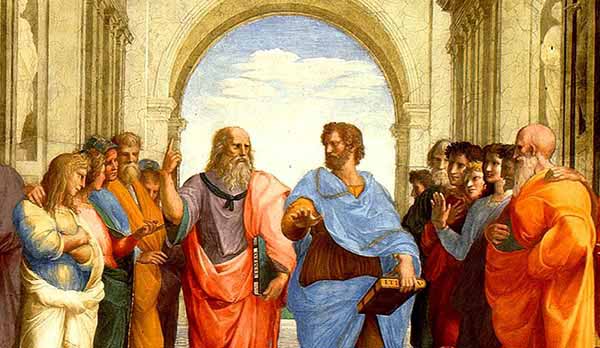Greek civilization, in the history of mankind, proved to be a very prolific civilization. It produced so many philosophers and thinkers who discussed great ideas and gave human beings the basis of so many branches of knowledge. Philosophy, religion, politics, arts, mathematics, astrology and so many others have some sort of contribution from the Greek civilization. The generations that followed, though developed much in each branch of knowledge, started with the discussions of the Greek thinkers as the basics. Among the great thinkers of the civilization, Aristotle was the one who produced some remarkable works regarding philosophy, politics and even literature. Though all of his works are worth serious consideration, his ideas on politics and ethics require special priority.
One of the general views which runs through Aristotle’s thought is a view of evolution or genesis. The universe of Aristotle is dynamic; his world is engaged in becoming. According to Aristotle the nature of each thing is a potentiality which moves through a process of development to an actuality which is true and final and perfect nature, for nature is the end. This general conception is applied by Aristotle not only to development in the sphere or organic nature, but also to constructions in the sphere of human art. The same can be seen in his discussions about government and morality and ethics.
Aristotle discusses the various forms of government that have been tried out in the world – dictatorship, monarchy, oligarchy and democracy. He analyzes each of them in turn, admits their strong features and points out their weaknesses. Of all the forms of government, dictatorship is the worst, for it subordinates the interests of all to the ambition of one. The most desirable form of government, on the other hand, is that which ‘enables every man, whoever he is, to exercise his best abilities and to live his days most pleasantly’; such a government will always be a constitutional government. Any government without a constitution is a tyranny, whether it is the government of one man, of a few men, or of many men.
The government should not be, like Plato’s Republic suggests, communistic. The common ownership of property and especially of women and children would result in continual misunderstandings, quarrels and crimes. Communism would destroy personal responsibility. “What everybody owns, nobody cares for”. Common liability means individual negligence. “Everybody is inclined to evade a duty which he expects another to fulfill”. You can no more hope to communize human goods than you can hope to communize human characters. Aristotle advocates the individual development of each man’s character and the private ownership of each man’s property.
Aristotle while commenting on education says that the government must be vitally concerned with the education of the young. And this education must be both practical and ideal. It must not only provide the adolescent citizens with the means for making a living but it must also teach them how to live within their means. In this way, the state will be assured of an enlightened, prosperous, cooperative and contended body of citizens.
About democracy he says that the rulers must aim at the pleasure of the ruled. They should achieve contentment through justice. It is only in this way that they can avoid revolutions. “No sensible man, if he can escape from it or overthrow it, will endure an unjust government”. Such a government is like a fire that heats the pent-up resentment of the people to the bursting point. It is bound, sooner or later, to result in a violent explosion. Judged from the standpoint of fairness towards its citizens, democracy appears to be the safer and less liable to revolution than any other form of government.
The aim of every government, according the views of Aristotle, is to ensure the welfare of the governed. And thus politics translated into ethics. The state exists for man, and not man for the state. Man is born for only one purpose – to be happy. But what is happiness: it is that pleasant state of mind which is brought about by the habitual doing of good deeds. But to be happy it is not sufficient merely to be good. It is necessary also to be blessed with a sufficiency of goods – that is good birth, good looks, good fortune and good friends.
It is possible for the noble man to be happy for the noble soul can cultivate an insensibility to pain and this in itself is a blessing. In other words, we may sometimes attain happiness by renouncing it. Furthermore, no man can be called unhappy if he acts in accordance to virtue. For such a man will never do anything harmful or mean and happiness, as we have already observed, consists in the doing of good deeds, but the only completely happy man is he who is active in accordance to complete virtue and is sufficiently equipped with wealth and health and friendship, not for some lucky period of time but throughout the complete life. Aristotle then added the fourth requisite for happiness – moral nobility.
Aristotle describes the ideal man as one who is most worthy of being happy. This ideal man does not expose himself unnecessarily to danger but is willing in great crisis to give his life if necessary. He takes joy in doing favors to other men but he feels shame in having favors done to him by other men. The doing of a kind deed is not an act of self-sacrifice but of self-preservation. For a man is not an individual self but a social self. Moreover, every good deed is a profitable investment. It is bound, sooner or later to be returned with interest.

